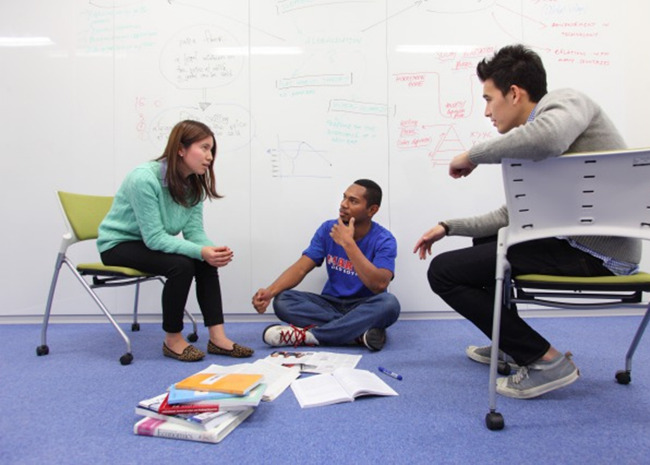
International community literacy
"All classes are in English, and we will develop global human resources."It's a common university slogan, but I can't help but feel a strong sense of discomfort.In places like the one above, there is a very clear purpose that English is inevitable, and Japanese students desperately learn a language for that goal.
However, we find that being unable to communicate with the world has more essential challenges than language.It is the gap between literacy (a tool for common understanding) and awareness of issues rooted in social conditions.In an environment where there are many countries where tacit knowledge cannot be understood even in Japan due to differences in race, ethnicity, religion, etc., in order for everyone to gain a common understanding, data (statistics, etc.) and common knowledge of humankind are quoted. Is indispensable, and if you do not have the ability to read the data, you will make a mistake in your judgment. Figures don't lie, but liars do figure. Everyone will not nod unless they develop a typical discussion.
If so, it can be seen that the literacy required in the global arena is mathematics (science) rather than English.In a discussion place where many Japanese people can read the air and breathe Aun, they don't even notice it.Reading comprehension and critical thinking skills (national language) that are more important than English, the ability to read all things in nature (living things), geography and history ...The more you set the world, the more you realize that all the knowledge you learn in high school is literacy to get to know the world, not to take an examination, and that it is a tool that can be used immediately.
To close the gap with the world
In the world, there are overwhelmingly many countries that border on land with multiple countries, and ethnicity, religion, economic disparity with neighboring countries, immigration and refugee issues, etc. are "the crisis that is right now".If you expand the world map and look at Japan, the world's third largest economy surrounded by the sea on all sides occupies a very special position both geopolitically and socially, and there is a big gap with the world in daily issues. I have to say that there is.
Many emerging and developing countries are full of young people who are full of spirit to create countries and societies in the background of the rising economy like Japan used to be.They are living in the era of ancestors such as Sony and Honda who boldly challenged the world without fear of risk at the dawn of Japan's high-growth era.As Japanese entrepreneurs did, they are always looking for a place to challenge the world stage with a sense of speed to try first, without fear of risk.Rather than the university preparing a set for developing global human resources, it is more important to have an education that mixes students with the world and allows them to find their own definition of global.If you put yourself in an environment where you can see Japan from the world, your horizons will naturally expand.
Connect high and high with inquiry learning
APU introduced an inquiry-type entrance examination called "Human Resources Development Entrance Examination that Changes the World" from FY21.I mentioned earlier that the skills needed in discussions with students around the world are based on basic knowledge in high school, but more important is the ability to "question."Students who grew up in a highly homogeneous Japanese society are good at seeking one correct answer, but they are weak in doubting the preconditions.
The basis of inquiry learning introduced in secondary education is to train learners who voluntarily ask "why", but it is an important literacy especially in the place of learning of APU where dialogue between different cultures is the basis. Positioned.Speaking of high school connection, only entrance examination reform is talked about, but at APU, we would like to provide an opportunity to mix high school students and the world in order to create a mechanism to collaborate with high school and develop inquirers. Are
Ritsumeikan Asia Pacific University (APU) Tokyo Office Director
Takeshi Ito
Profile Joined Ritsumeikan Asia Pacific University APU in 2002.After working as an exchange student, recruiting students, and working in the president's office, he has been in his current position since 2017.
- 1
- 2

